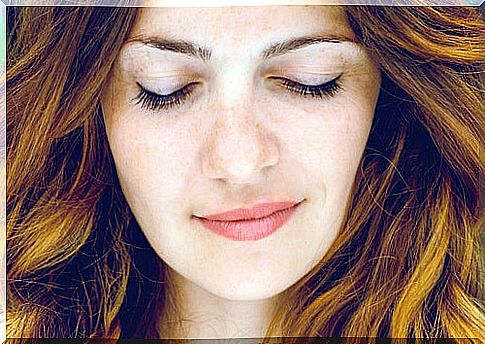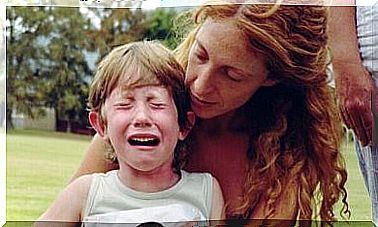Emotional Flexibility: The Key To Feeling Better

Sometimes, trying to make everything make sense and be perfectly organized makes us a bit stiff. What if we also do it with our emotions? We would not allow life to flow; therefore, it is important to have emotional flexibility.
It consists of accepting perfection, even discarding it as a way not to carry so much stress. In this way we give wings to self-confidence, promoting a healthier environment, thus achieving a higher quality of life.
We invite you to take a tour of emotional flexibility. We will tell you what it is about, how to get it and what are the benefits of doing so.
What does emotional flexibility mean?
It is the ability we have to adapt to emotional circumstances. So, it consists of the ability to let our emotions flow and be tolerant to changes; this must occur in different contexts.
In other words, it is the art of emotionally adjusting to the events that arise. In addition, it is a difficult skill to practice and achieve, because life is constantly generating changes, and it can be overwhelming to systematically discard a good solution to go for the best one.
However, it is possible, the important thing is to try to be assertive so that our emotions always have a space to breathe.

How can you be flexible on an emotional level?
There are several ways to increase emotional tolerance. If that is the path you want to take, we provide you with some strategies to help you:
- Release to make the trail lighter. Why hold on to what hurts us? Leaving aside what is toxic to you frees us, and allows us to better adjust to the changes that come.
- Be aware that each emotion has its value. Taking them away is not healthy, because each one fulfills a function; each one has an energy from which we can draw and a message from which we can learn.
- Cultivate resilience. It’s about the ability to cope with problems. As frustrated as we are, we can transform those feelings into courage and effort, which will later be rewarded with great moments.
- Learn from the past. There are times when it is easy to lose control; If we learn from them, we can use this preventive teaching to warn us of what could happen if we follow the same steps.
- Goodbye remorse. Guilt exhausts, and makes us stay in the past. While it is important to learn, it is not healthy for us to hold on to something that has already happened and we cannot change.
- Let’s embrace our fears. It is difficult that fear does not arise since it constitutes the most powerful part of our alarm system. So instead of turning a blind eye, that is, pretending they don’t exist; rather, let’s hug them, let’s get in deep contact with them; knowing their origins will also make us get to know ourselves better.
- Let’s give ourselves permission. It’s about letting your emotions flow. To allow them to be, and to live with them.
- Cultivate healthy relationships. For this we need to make use of our self-knowledge and self-esteem, if we give ourselves value and know how we are, we can be more flexible and forge relationships that are based on this ability. In addition, it is essential that we surround ourselves with people who are not toxic, as this weakens our emotional flexibility.
- Do activity. For example, sport helps us to be more focused and feel better thanks to the neurotransmitters and endorphins that we release when doing so. And, art allows us to transform our anguish into something that is pleasant.
On the other hand, we must remember that we do not have all the answers. Therefore, it is essential that we also give space to the subjective, listening to the opinions of others. His truth, in this sense, will always improve ours.
Nor should we forget that sometimes you have to release emotional control. Nothing happens to cry, scream or laugh. Being irrational, we discover irrational and contradictory does us good. By assuming us, dissonance will stop threatening us, claiming the right to update in the present what we do or think without anyone acquiring the right to judge us.
To have our emotional flexibility, we also need to be connected with our thoughts and actions. For this, we can count on various practices, for example: mindfulness and self-compassion.
In fact, Shadi Beshai, Jennifer L. Prentice, and Vivian Huang, in an article called “Building blocks of emotional flexibility: Trait Mindfulness and Self-Compassion Are Associated with Positive and Negative Mood Shifts”, published in Mindfulness magazine , show a study in which they found that mindfulness and self-compassion act as protective agents against falling moods and mood swings.

What are the benefits of having emotional flexibility?
The advantages that we can have when we make emotional flexibility a skill present in our lives, are the following, among others:
- Greater self-knowledge.
- Increase our self-esteem.
- Greater emotional management.
- Increase our tolerance.
- Greater capacity for mindfulness.
- Increase our self-pity.
- Improve the relationship with others, with us and with the environment.
- It improves our ability to make decisions.
- Constant learning.
- There is release of tensions.
- Greater resilience capacity.
- Toxic relationships and environments decrease.
In summary, emotional flexibility can be summarized as the ability to assume that the range of emotions that can invade us is wide, from which almost always an emotional mixture emanates and not a pure emotion.
Thus, it has a lot to do with acceptance without judgment, with honesty with oneself, with an emotional intelligence that unites us to the most primitive, and perhaps rich, of our nature.
Cultivating it will help us see each emotion as unique and valuable. Also to know when it is better or not to express it, and to transform moments of chaos into moments of harmony; to another, we will move towards a better quality of life.









